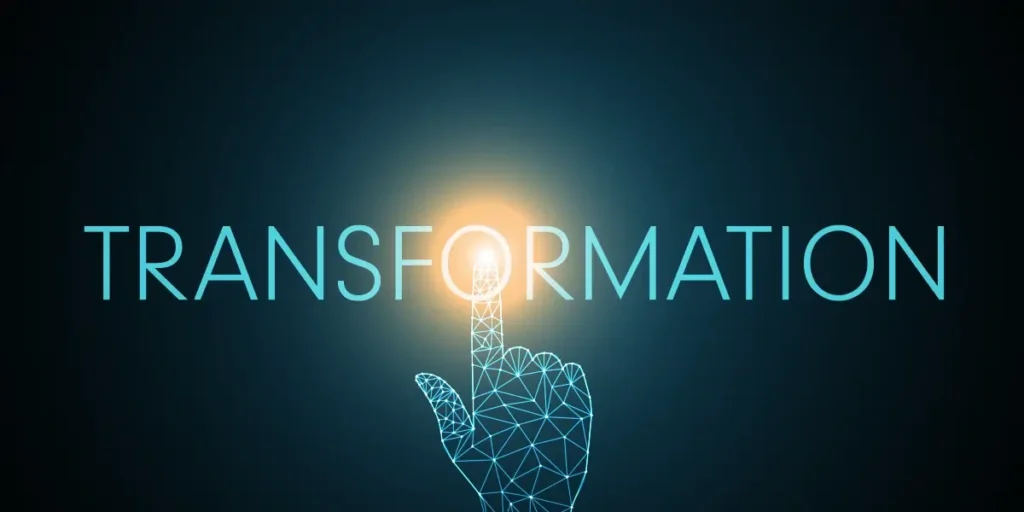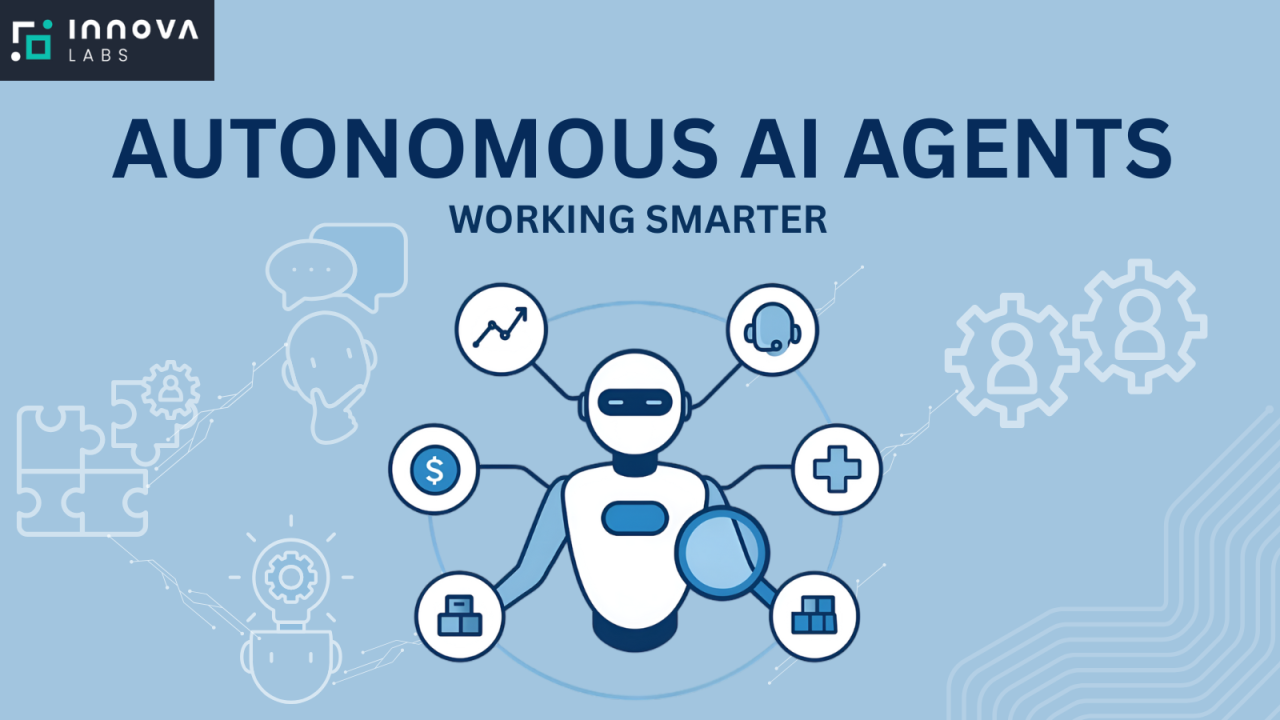Applications of Quantum Computing
Introduction: What is Quantum Computing, Really?
Consider a computer that was so fast it is able to break the encryption of today in seconds, simulate the interaction of molecules at an atom level, and use problems solved in seconds that would take classical computers millions of years. It is not science fiction rather it is the potential of quantum computing.
Quantum computing is an exciting new science that occurs at the crossroad between physics, computer science, and mathematics. Unlike conventional computers, which are unable to work with anything but the data in bits (0s and 1s), quantum computers operate on qubits, and that is where everything changes.
So in the following article we will deconstruct what quantum computing is how it works what makes it so revolutionary and what problems we still await to solve in the coming years of 2025 and onwards.
1. The Basics: Classical vs Quantum Computers
💻 Classical Computers
- Make the basic unit of information bits.
- At any point of time a bit can be either 0 or 1.
- Act by working under a program of instructions.
- Excellent when using word processor, browsing, coding, etc.
⚛️ Quantum Computers
- Apply qubits (quantum bits).
- A qubit may be at state of 0, 1 or both simultaneously (superposition).
- Is able to do numerous calculations at the same time.
- Function according to the rule of quantum mechanics.
Quantum computing is not simply faster computing it is a completely different paradigm of computation.
2. Core Concepts in Quantum Computing
Now, let us crack the major concepts behind quantum computing and its uniqueness:
🌀 Superposition
A qubit simultaneously can be in many states.
Consider tossing a coin, it is the head and the tail till the coin falls. Likewise, a qubit remains 0 and 1 until it is measured.
🔗 Entanglement
Qubits can be entangled, i.e. the state of one qubit is directly associated with the state of another – even at great distances. This will enable immediate correlation of the information unlike in the case of classical computers.
🔄 Quantum Interference
Quantum algorithms employ the interface to boost right answers and nullify wrong ones. The process exponentially provides quicker calculations.
3. Why Quantum Computing Matters
The opportunity to revolutionize almost every industry with quantum computing is to create the solutions to problems which classical computers cannot solve or do efficiently.
🧬 Drug Discovery
Classical machines find it difficult to simulate molecules and proteins. The new fact would allow quantum computers to be more useful in accelerating the development of new medicines through quantum modeling of the behavior of molecules.
🔐 Cybersecurity
Hardness of factoring large numbers has become the basis of most of modern encryption systems (such as RSA). State-of-the-art encryption could be broken through quantum algorithms such as Shor which would change cybersecurity.
🚗 AI & Optimization
Quantum computers can optimize complex systems like:
-
Traffic flow
-
Supply chains
-
Investment portfolios
-
Artificial intelligence neural network
🌍Modeling of the Climate 1
4. Current Progress in 2025: Where Are We Now?
As of 2025, quantum computing is still in its early stages, but the progress has been remarkable:
🏢 Industry Leaders:
- IBM: Developed a system of 1000 + qubits to have error mitigation layers.
- Google Quantum AI: Announced a so-called quantum supremacy with Sycamore processor.
- IonQ & Rigetti: Dedicated to the quantum platforms that can be accessed in clouds.
- China and EU: swift state-supported research development.
☁️ Quantum-as-a-Service (QaaS)
You can now access quantum computers online through platforms like:
- IBM Quantum cloud
- Azure Quantum Microsoft
- Amazon Braket
With these, scientists, students, and startups can train algorithms in actual quantum computers.
5. Challenges Facing Quantum Computing
Though, the technology is not there yet despite the hype. Quantum computers continue to have a major challenge:
❌ Qubit Stability (Decoherence)
Qubits are extremely vulnerable. Small fluctuations in temperature or electromagnetic fields could make them lose their quantum state- and calculations are unreliable.
❌ Error Rates
Quantum processes are likely to be inaccurate. There is a possible way of error correction but needs large numbers of additional qubits adding to complexity.
❌ Scalability
Most existing systems utilise dozens or hundreds of qubits, whereas actual applications could require millions.
❌ Hardware Limitations
Quantum hardware (superconducting, ion trap, and photonic) is deplorably difficult and costly to construct. Nature of cooling systems may involve almost absolute-zero temperatures.
6. Types of Quantum Computers
Quantum machine construction may take numerous directions:
🧊 IBM, Google- Superconducting Qubits
-
Load superconducting circuits which are cooled down to ultralow temperatures.
-
Well-studied and fast and noisy.
💡 Photonic Quantum Computers
-
Handle and store data using photons (light particles).
-
Do not need cooling, are however difficult to control interference.
🔗 Trapped Ions ( IonQ)
-
Employ charged atoms in electric fields which are carried in magnetic fields.
-
This will be high in stability but operational at slower speeds.
🧪 Topological Qubits (Microsoft)
-
Theoretical, still but have promises of lower error rates.
-
Send the information with exotic particles who store it in their braids.
7. Quantum Algorithms and Its Workings
Not all algorithms perform faster in quantum computer. However there are quantum algorithms that have massive speedups
📌 Shor’s Algorithm
-
Factorise large numeraire within a polynomial operation.
-
Have the possible capacity to decrypt encryption systems such as RSA.
📌 Grover’s Algorithm
-
Accelerates non-structured search issues.
-
Halves the time of N to N.
📌 Quantum Fourier Transform (QFT)
-
Applied in different quantum signal processing and solving of differential equations.
8. Ethical Implication and Security Implication
There is also an ethical and geopolitical concern in quantum computing:
🔓 Post-Quantum Cryptography
What comes of taking LLMs and AI agents onto quantum hardware? Whose data is secured when encryption fails?
To protect the future, organizations such as NIST are currently developing quantum-resistant standards of cryptography.
⚠️ Quantum Arms Race
States are in a winner-take-all race to gain quantum supremacy first not only because of innovation, but also because of strategic control of data, finance, defense and AI. Quantum advantage may prove to be a geo-political weapon similar to nuclear weapon decades back.
👥Job Displacement
Quantum computing vs artificial intelligence.
One of the hot subjects in 2025 is: Will AI be spurred by quantum computing? Answer: Absolutely. Quantum computers are able to:Train machine learning models faster
-
Learn to train machine learning models at a faster rate
-
Locate trends in large volumes of information
-
Streamline neural networks
10. When Will Quantum Computing Go Mainstream?
Predictions vary, but here’s a realistic timeline:
| Year | Milestone |
|---|---|
| 2025 | 1000+ qubit systems, early enterprise use |
| 2027 | Breakthroughs in error correction |
| 2030 | Viable post-quantum cryptography adopted globally |
| 2035 | Scalable, reliable quantum computers in real-world sectors |
| 2040 | Mainstream hybrid quantum-classical computing |
Quantum computers won’t replace classical ones — instead, they’ll work alongside them for specialized tasks.
11. Applications in the Real World of Quantum Computing in 2025
Although the time of fully scaled quantum computing has not yet come, it is already providing value in selected regions with early-stage quantum computers. This is how some of the industries are already reaping.
🧬Pharmaceuticals and Drug Discovery
Quantum computers are enabling pharmaceutical companies to model and simulate molecular interactions in a way that the classical supercomputers cannot. Quantum algorithms can perform calculations that others cannot, by:
Analyze how proteins fold.
-
Model chemical reactions.
-
Make predictions on how a new drug compound will interrelate with various enzymes.
Such firms as Roche, Pfizer, and D-Wave invest millions in quantum simulations of drug discovery, cutting both drug development times and expendable costs in half.
⚙️Quantum computing is one of the largest buzzwords when humans speak about the future of science.
And quite rightly so: such devices can grind through mathematical problems that collapse on common computer systems, modeling atomic scale material behavior.
Courtesy of that capability, scientists believe that quantum tech will discover:
• Solar panels which convert sunlight to energy with reduced losses.
• Stronger and lighter high-strength aerospace materials which we never have seen.
• Superconductors of new types that transport power at virtually no resistance.
• High performance semiconductors.
In a word, quantum computers will drive the next era of electronics, carbon-free sources of energy and precision engineering will be made infinitely easier.
📈 Finance and Investment
Quantum algorithms are extremely good at optimization problems, which the finance sector deals with daily:
-
Optimization of portfolio in an uncertain environment.
-
Multivariate volatility models of risk analysis.
-
Conducting real time fraud detection.
-
Pricing options in multi-dimensional models.
Financial institutions such as JPMorgan Chase, Goldman Sachs and Barclays are no exceptions to stock up on quantum computing firms in an effort to make their approach to algorithmic trading future-proof.
🚛Supply Chain and logistics
The idea of the logistics optimisation sounds impossible, millions of variables competing in time, cost, and resources. Quantum computing comes to the rescue:
• The increased delivery time
• Less fuel burned up
• Enhanced balance between demand and supply along the chains of supplies worldwide
Already in 2025, DHL and Volkswagen are testing quantum-enhanced logistics, which in test areas can reduce operating costs and increase the efficiency of fleets by up to 30 percent, according to reports.
🌐 Telecommunications
Quantum computing supports:
- Every student of the University can imagine large benefits being realized in moving large amounts of information by applying smarter error correcting codes. The ease of sending and receiving the information without misfires enabled by that kind of coding is enormous in case of high-speed communication.
- Modeling the quantum channels in optical fibers is interesting on the research side. It enables us to have a clue of how information transmission over long distance at reduced losses can come through light in the future.
- When you have that basic stuff, then we can begin to speak of predicting network traffic with 5G and whatever follows. It is important to have the ability to predict how much data will be circulating at any particular time and also ensuring that there is space to respond to that.
This could lead to faster, more secure, and smarter global networks, enabling smoother AI-agent collaboration and edge computing.
12. Quantum Computing Around the World: Country-Wise Initiatives
Quantum supremacy is not a regular race in technology: it is becoming an all-out global competition. Just as nations scrabble over position in space or nuclear weapons, they now compete to be first to put quantum-computing in operation.
🇺🇸 United States
- In terms of commercial quantum development, the U.S. is obviously leading, as such large players as IBM, Google, Microsoft, Rigetti, and Honeywell take the industry to the next level.
- At the level of the government, the National Quantum Initiative (NQI) and the Department of Energy Quantum Information Science Centers are investing heavily in the research of quantum hardware and algorithms.
- In the meantime, the DARPA is keenly interested in the military application of quantum-secure communication.
🇨🇳 China
- China is already investing and submerging billions of dollars in state-led quantum research.
- They introduced a quantum computer namedJiuzhang last year which outperformed classical supercomputers in one particular task.
- They are also racing in quantum satellite, encryption based on quantum and encrypted messaging.
🇪🇺 European Union
- The multi-year, multi-billion-euro Quantum Flagship Program of Europe has turned out to be a key attraction point of quantum research. Through consolidation of human and financial resources and talents in Germany, France, Netherlands and a couple of other important partners, the program is testing on the limits of what quantum science can achieve.
- There are some factors that are evident. To begin with, the research agenda starts with high level theory, demonstrations in laboratories, and preliminary applications, the type of projects that often get born in university labs and out of collaborations by graduate-students. Second, the program has established work streams to harmonise standards, identify and answer ethical questions and educate the quantum engineers and scientists of the future.
- To sum it up, the Quantum Flagship giving those quantum dreams of the Europeans a solid reality and help every aspect of quantum computing, quantum communications, and quantum-enhanced sensors. It is a great testimony to how organized, science with money at the ready can effect actual change.
🇮🇳 India
-
The National Mission on Quantum Technologies & Applications (NM-QTA) was recently announced in India.
-
Institutes of big names such as IIT Madras and IISc Bangalore are beginning to install quantum labs and deploy special degree programs.
-
The mission involves the development of local quantum talents and building systems that would guarantee future-proof security, a key objective in an age where constantly-increasing computing capabilities are causing new security threats.
🇨🇦 Canada
-
The company that has been among the pioneers of quantum annealing, D-Wave Systems, can be easily found right here, in Waterloo.
-
Even better, the company is collaborating with local organizations such as the Perimeter Institute and the Institute for Quantum Computing at the University of Waterloo, funding quantum computing training, and laboratory facilities.Such outreach effort demonstrates that D-Wave does not forget to look toward the future and ensure that the next generation of quantum researchers is properly trained.
13. Regarding quantum computing,
we usually hear the same story that it is still too soon to have machines that we can use in our day-to-day lives; however, some business managers are already laying out the foundation of the future. This is what by 2025 you can see:
🏢 Steps Businesses Are Taking in 2025:
- Internal quantum groups: a combination comprising physicists, machine-learning experts, and dev engineers working within corporate research and development labs
-
Cloud-based testing: using quantum algorithms on services such as the IBM Qiskit and Amazon Braket
-
Future-proofing: implementing the up-to-date encryption protocol to prepare against the security threats of the post-quantum world
-
Small pilots: quantum optimization of logistics, finance, and complex modeling problem💼 Sectors Leading the Charge:
14. Quantum Computing in Academia
There is a continued leading role of academia in theory to working with their hands and this is why most of the projects making all the hype are run in universities.
🎓 Top Academic Contributions:
-
minIT and Harvard are authoring the textbook on quantum algorithms and hardware structure.
-
University of Oxford and ETH Zurich are exploring into fault tolerant qubits.
-
University of Tokyo is improving quantum memory facilities.
-
Indian Institutes of Technology (IITs) are giving a thrust to quantum sensors and secure channels of communication. Most importantly, quantum computing is now taught at the undergraduate level in leading institutions — building the future quantum workforce.
15. The Rise of Quantum Education and Workforce
Quantum computing isn’t just a science project anymore — it’s an emerging career path. The demand for professionals with quantum programming, physics, and algorithmic experience is rising fast.
📘 Quantum Job Roles in 2025:
- Quantum Software Developer: the construction and optimization of quantum algorithms.
- Quantum Algorithm Engineer: development of quantum applications and the improvement of known tools and protocols.
- Quantum Hardware Specialist: collaborating with the hardware team in the effort to increase the stability and connectivity of qubits.
- Quantum Security Analyst: simulation of quantum communication services and carrying out secure transmission measures.
- Quantum Chemist (simulation): the design of quantum chemistry codes to model biochemical processes.
- Quantum-AI Hybrid Researcher: working with AI researchers on how to perform quantum computation tasks in modern machine-learning pipelines.
📚 Skills in Demand:
- Python (I have personal preferences of Qiskit, Cirq and Pennylane).
- Quantum mechanics and Linear Algebra.
- The principles of Machine Learning.
- Complexity Theory and Cryptography.
- Integration in the cloud (AWS Braket, Azure Quantum).
To top this, funding by governments and universities is being channeled towards bootcamps, MOOCs, and internships as they serve fast-tracked vocational training towards applicants in this new frontier
16. Societal Impact: How Quantum Computing Could Reshape the World
Quantum computing will clear the existing challenge and access new abilities that are beyond the scope of classical machines. It is thrilling, particularly when one reads about such industry, even as a student like us, but then there arise certain really huge ethical questions. This is how quantum technology has the potential to alter the world and what problems it may cause.
⚠️ Data Privacy & Cybersecurity
The biggest fear is quantum decryption — where existing cryptographic standards become obsolete. If bad actors gain access to powerful quantum computers:
- There was the possibility of hacking banks.
- Secrets on government.
- Blockchain networks were hacked.
This puts post-quantum cryptography on high priorities globally.
📉 Workforce Disruption
Quantum-enhanced automation could:
-
Replace jobs in modeling, optimization, and forecasting.
-
Create gaps between quantum-trained and legacy workers.
-
Concentrate tech power in even fewer hands.
Workforce reskilling will be as essential as it was during the rise of AI.
🧠 Merging with AI
Quantum computing could supercharge AI, enabling:
-
Ultra-fast neural network training.
-
Real-time, AI-driven predictions for national security, finance, and climate.
-
Autonomous agents with quantum problem-solving abilities.
This raises new questions around ethics, transparency, and explainability.
🌍 Inequality and Quantum Divide
Access to quantum systems may be limited to:
-
Wealthy countries
-
Large corporations
-
Elite universities
This risks creating a “quantum divide” — where developing nations fall behind in healthcare, innovation, and defense capabilities.
Conclusion: The Quantum Revolution Is Real
Quantum computing is not a fictional subject we study at night before exams; it is already transforming our perception of issues that are too difficult or big to solve using the current computer equipment. It can be seen as a entirely new way of doing a computation, simulation, and wrestling with complexity.
We are just on a precipice and that leaves much of what is in the future hanging. Be it to write code at lab, to write policy in a campus office, to work on a startup in an incubator, or simply still catching up with your lectures, getting a start on quantum now is the single best way to be prepared for the next thing that comes along.
Quantum is no longer its sci-fi. It is slowly emerging science qubit by qubit.






